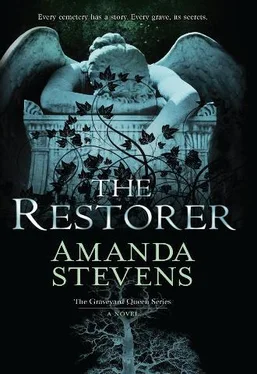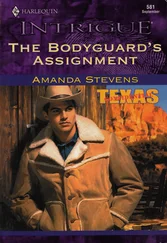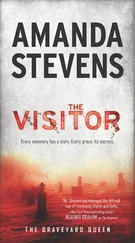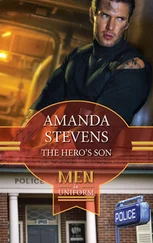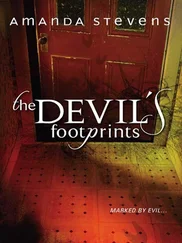She tucked her gray hair behind both ears. “He and his mama lived a few houses down from me in that blue two-story on the corner. So I have a lot of memories of that boy, none of them good.”
“Can you elaborate?”
“He was a bully,” she said. “The meanest one I ever saw. I’m not talking malicious in the way kids can be to one another, but so cruel and sadistic his own mama was afraid of him.”
“Can you describe his physical appearance?”
“Average height, I would say, with a stout build. Not fat, mind you, but solid muscle. Wide shoulders, big arms. Hands the size of hams. He looked liked he could pick up a car if he had a mind to. He played football for a time, but he was too vicious even for that. Hurt another boy so bad they had to kick him off the team. I reckon that set him off. Sports was about the only thing he ever took any pride in. You never saw him without that jacket, even when the weather was warm.”
“You say he was a bully. What kind of things did he do?”
“He murdered my poor little Isabelle.” She picked at the neck of her blue-flowered housedress. “Prettiest white Persian you ever laid eyes on, with a real sweet disposition. She was a house cat, but she got out one day and I must have walked the neighborhood a dozen times over until I finally found her hanging from a tree in my own backyard. He’d strung her up like a deer waiting to be gutted.”
My stomach churned at the picture. Strung her up…like Hannah Fischer and Afton Delacourt. But at the time of Hannah’s murder, Clayton Masterson had already been dead for years, viciously murdered, his body left to rot down in that chamber.
“The way he tortured that poor creature…” Tula broke off, tears pooling in her eyes as she touched a napkin to her nose. “I never got over it. I still can’t go out in the backyard without seeing that sweet little kitty hanging from that tree.”
I murmured my sympathies and gave her a moment while I mulled everything over. The more I learned, the more confused I became. Who had carried on Clayton’s legacy? “How did you know he was responsible?”
“He had the nerve to brag about it,” Tula said angrily. “He killed Myrtle Wilson’s little Pekingese, too. She found him just like poor Isabelle. And there were other animals. Squirrels, rabbits, even possums. It got so you hated to go outside because you didn’t know what you might find hanging from the trees.”
The grotesque imagery made me shudder. “Did anyone ever call the police?”
“That boy was far too clever for the law. Even when he was little he knew how to hide his tracks. And by the time he was grown, people around here were too afraid to call the authorities, afraid he’d burn their houses down around them while they slept. Then that little girl on Halstead went missing. A couple of detectives showed up and took him in for questioning. They never could prove he had anything to do with her disappearance, but I think they must have found something on him. They sent him to one of those detention halls for juvenile delinquents. Or maybe it was a mental hospital. His mama moved away while he was gone. I never saw her or the boy again. Or the other one, either, come to think of it.”
“The other one?”
Her face softened. “He was a quiet, scrawny little thing. He and his mama lived in a rental house a few blocks over. From everything I heard, she wasn’t much of a mother. A drinker, they said. Always bringing strange men home with her. Some example she set for her boy. He never stood a chance. I used to see him out wandering the streets at all hours. Or just sitting alone on the front porch. I guess that’s why he took up with Clayton Masterson. Poor kid was lonely. The two of them were inseparable for a while, but I don’t think he had anything to do with killing those animals. Not by choice, anyway.”
“What do you mean, not by choice?”
She leaned forward, her eyes clouded. “Used to be a vacant lot by the river. A lot of kids played over there. One of the neighborhood boys claimed he saw Clayton and the other kid back up in the woods one day. Clayton had strung up an old mangy dog and he tried to get the other boy to kill it. When the little one refused, Clayton bound their wrists together and forced the knife into the kid’s hand. Forced him to plunge the blade into that poor dog’s heart.” She leaned back, hand clasped to her throat. “Can you even imagine such a thing? You know what I call somebody like that? A natural-born killer, is what.”
I was afraid she might be right. “What was the other boy’s name?”
“I don’t think I ever knew. He and his mama kept mostly to themselves. I did hear rumors that she was from a well-to-do family and they’d disowned her years ago.” Tula paused with a pensive frown. “They said she was a Delacourt. But you know how people love to talk.”
As I drove away from Tula Mackey’s house, my first instinct was to call Devlin. I’d made an important discovery, but revealing it could be tricky. How could I explain that Clayton Masterson’s ghost—and that letterman’s jacket—had led me to him?
I’d have to give the matter careful consideration, and in the meantime, I decided to go see Tom Gerrity. He was the one who had sent me to Ethan Shaw in the first place, and it was apparent to me now that he’d known all along what I would find there.
I used my phone to look up the address of Gerrity Investigations. The office was located north of Calhoun not far from where I found myself now. The area had once been residential, but most of the original houses had long since been converted into apartments and offices or torn down to make room for ugly brick commercial buildings that housed a variety of businesses.
Pulling to the curb, I scoped out the immediate vicinity. Gerrity’s was in one of the shabbier buildings on the block, an old Charlestonian-style clapboard with drooping porches and peeling paint. No gardens here, only a tangle of scrubby brush and weeds that hadn’t seen a mower in months.
As I headed up the cracked sidewalk, I took another look around. Since my conversation with Tula Mackey, I couldn’t shake a sense of foreboding—that no matter what I did or where I went, my destiny was on a collision course with a killer.
The outer door was unlocked, and I stepped through into what had once been an elegant foyer. Now the grungy space and its threadbare accoutrements—gold velvet armchair, moth-eaten rug and sagging Venetian blinds—served as a lobby for a handful of shady endeavors. After checking the row of mailboxes for a name and number, I climbed the creaky stairs to the second floor and found Gerrity Investigations all the way at the end of a long, dim hallway.
The door stood open, but the office looked deserted. I paused on the threshold to glance around. Like the rest of the building, the space had seen better days. An old metal desk faced the doorway. The only other furniture was an equally battered filing cabinet and a couple of plastic chairs.
There were no other doors. The one room apparently comprised the whole of Gerrity Investigations.
Bending backward to glance down the hallway, I walked over to the desk and glanced at the items littered across the surface. Pens, broken pencils, yellow legal pad, stapler, paper clips—nothing out of the ordinary.
I heard the squeak of footsteps outside and hurried back over to the door. A man strode down the hallway, but he wasn’t Gerrity. They were probably around the same age, but the newcomer was white, a few inches shorter and a few pounds heavier than Gerrity.
Darting back to the desk, I resumed my inventory. The only personal item in the whole space was a framed photograph of police cadets on graduation day. As I scanned the faces, a thrill of discovery raced through me. I recognized Tom Gerrity and Devlin. And too late…the man I’d seen in the hallway.
Читать дальше
Конец ознакомительного отрывка
Купить книгу
